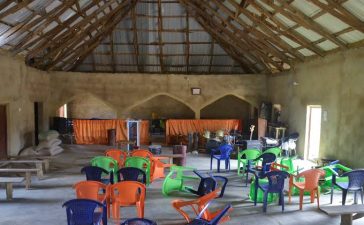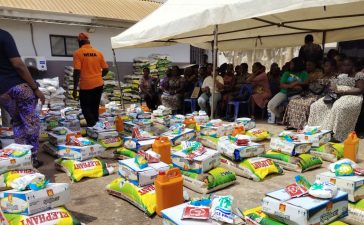Developing an export oriented enterprise, trade facilitation, cooperation, level playing field, and a conducive atmosphere formed the core of conversations bordering on boosting Capacity for domestic earnings, theme for the just concluded annual workshop of the Financial Correspondents Association of Nigeria which took place in Lagos over the weekend.
Participants at the workshop include Divisional Head, Agric and Export Fidelity Bank Plc, Isaiah Ndukwe, representing the Managing Director of Fidelity Bank, Mrs. Nneka Onyeali-Ikpe, Deputy Managing Director, United Bank for Africa (UBA), Mr. Muyiwa Akinyemi, representatives of the Nigeria Shippers Council (NSC), Central Bank of Nigeria (CBN), Securities and Exchange Commission (SEC), the Bank of Industry (BoI) and Nigeria Export and Import Bank (NEXIM), amongst others.
In her keynote address, the Managing Director, Fidelity Bank, Mrs. Nneka Onyeali-Ikpe, represented by Divisional Head, Agric and Export, Isaiah Ndukwe urged Nigerian commodities exporters on the need to switch to the export of value-added processed commodity items in order to earn more foreign exchange and improve Nigeria’s trade balance.
According to her, “most of our raw cashew nut exports go to Vietnam where more value is added to it and then re-exported. In 2020, Vietnam imported $1.5 billion worth of raw cashew nuts from Africa, added value to them and exported $3 billion worth of processed kernels. The uplift of $1.5 billion represents jobs and tax revenue opportunities that we could have created if this value addition was done in Africa.”
Onyeali-Ikpe said transitioning to value-added exports would provide immediate revenue uplift even without expansion of the primary commodity supply side.
“At three times increase in revenue, Nigeria can move cocoa exports to $3 billion per annum (currently about $1 billion) and cashew to $600 million (currently about $200 million) in the short term to medium term. “If we then double the capacity of our plantations as well as processing capacity, we can exponentially move the numbers.
She said a step forward was to move from cocoa beans to cocoa butter or powder and also move from raw cashew nuts to kernels as this would triple the foreign exchange revenues Nigeria earns from these commodities.
“This is not a reinvention of the wheel; it is a tried and tested lever for sustainable economic development. This is the same model that was used by the Association of South-East Asian Nations (ASEAN) i.e. Malaysia, Indonesia, Thailand and Vietnam to transform their economies into global manufacturing powerhouses.”
Ndukwe also spoke on the need for business in the country to develop an export oriented enterprise as this not only facilitates competitiveness for business but in the long run helps prospects for small businesses.
The event brought together key stakeholders across various sectors of the economy brainstorming on challenges and as well existing modalities which can be leveraged upon by businesses in the Country to position themselves for sustainable export earnings.
Addressing participants at the event, Trade Services Consumer Affairs Department, Nigeria Shippers Council (NSC), Adaora Nwonu, explained that trade thrives on cooperation, level playing field, conducive atmosphere, competition, uniformity of rules, among others.
Nwonu noted that ongoing seaports digitalization is at 68 per cent, adding that stakeholders should support the process.
According to Nwonu, plans are underway to introduce the National Single Window, which is an electronic platform to which all stakeholders in the port system will be connected and which is bound to check all forms of challenges.
Also at the event, the Central Bank of Nigeria (CBN) explained that its RT200 policy has begun to attract more commodities into the Nigerian export ledger.
The RT200 FX programme is an initiative of the CBN that aims to raise $200 billion in forex earnings from non-oil proceeds over the next three to five years. A major anchor of the programme is the Non-Oil Export Proceeds Repatriation Rebate Scheme.
Explaining further, the Principal Manager, Trade and Exchange Department, CBN, Mrs. Anne Nnenna Ezekannagha, said: “RT200 is an initiative that was launched by the CBN and is currently, anchored on our rebate scheme. So, the idea is that we want to encourage exporters to repatriate their funds. A lot of exporters do not repatriate their funds and the RT200 is to encourage the repatriation of non-oil proceeds.
“We have seen a significant improvement not just in the figures that are being repatriated, but also in the number of exporters that are willing to come to the formal sector. Because a lot of our export has been happening informally, but with this scheme, we have found that a lot more players in the export sector are willing to come to the formal sector.
“So, we are also noticing not just the increase in the figures but also in the increase of the commodities that we are exporting that was reported earlier. Like the solid minerals, we are seeing more in the solid minerals and we are seeing more players in that sector, coming into the formal sector to report their exports and participate in the RT200.”







